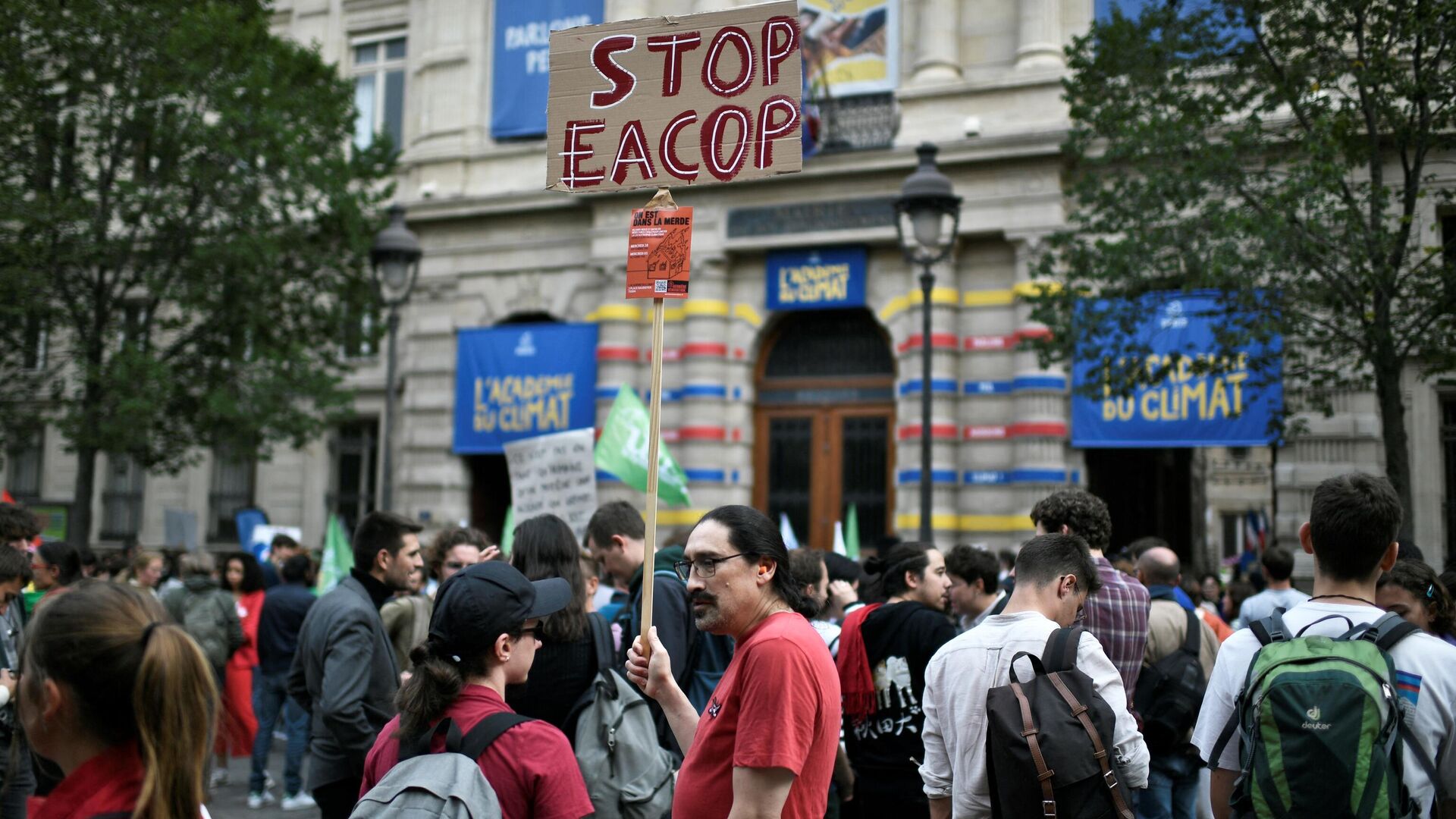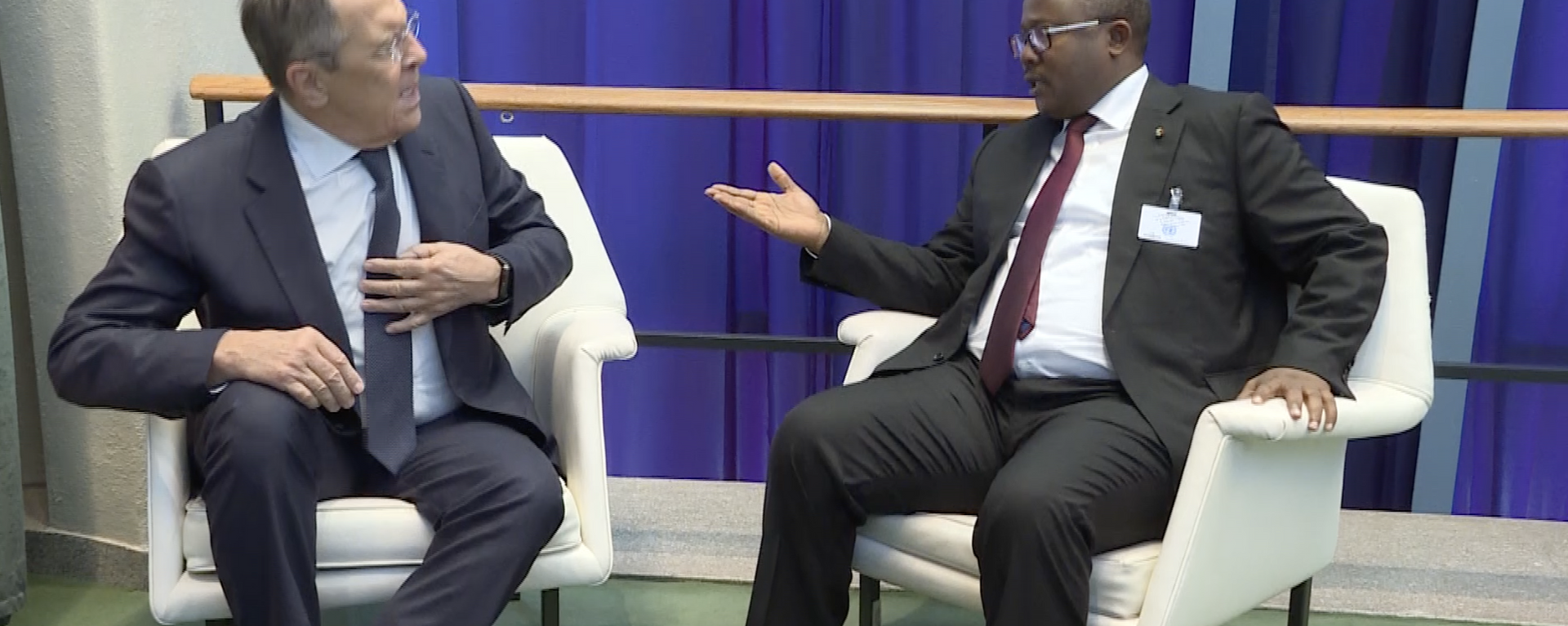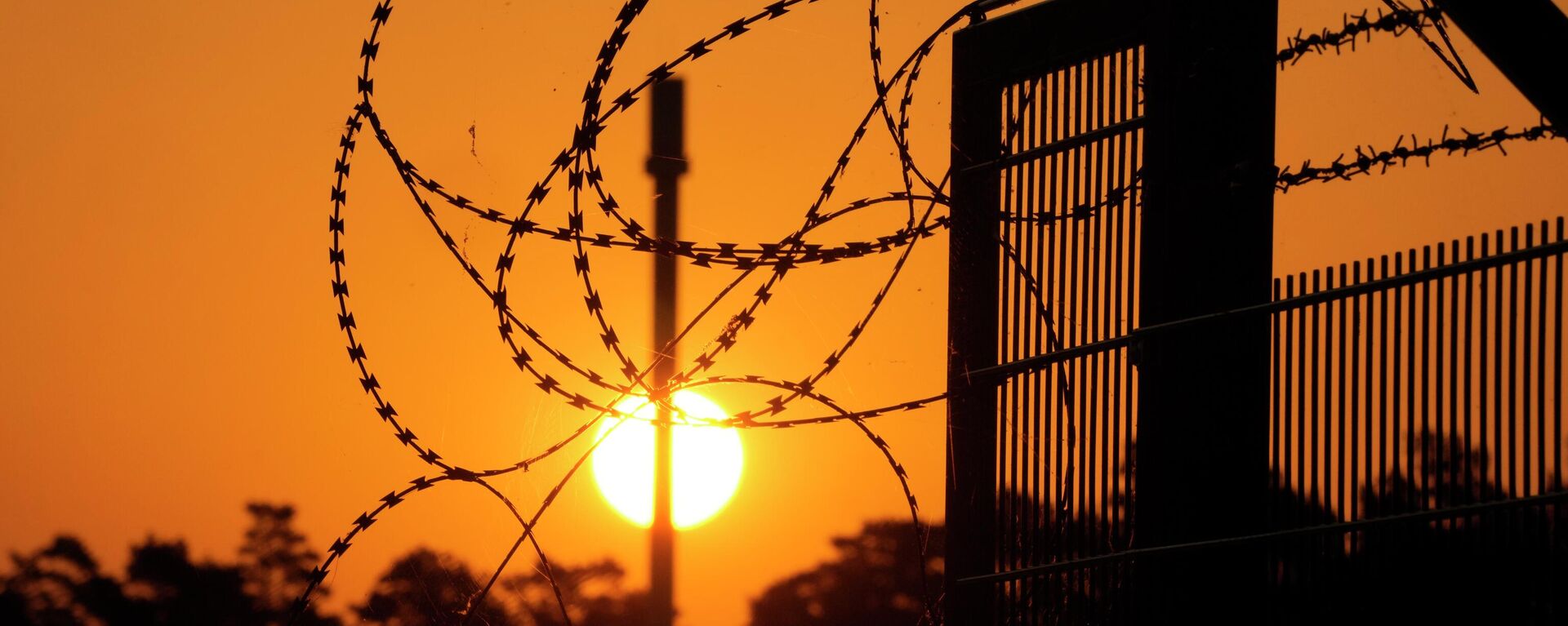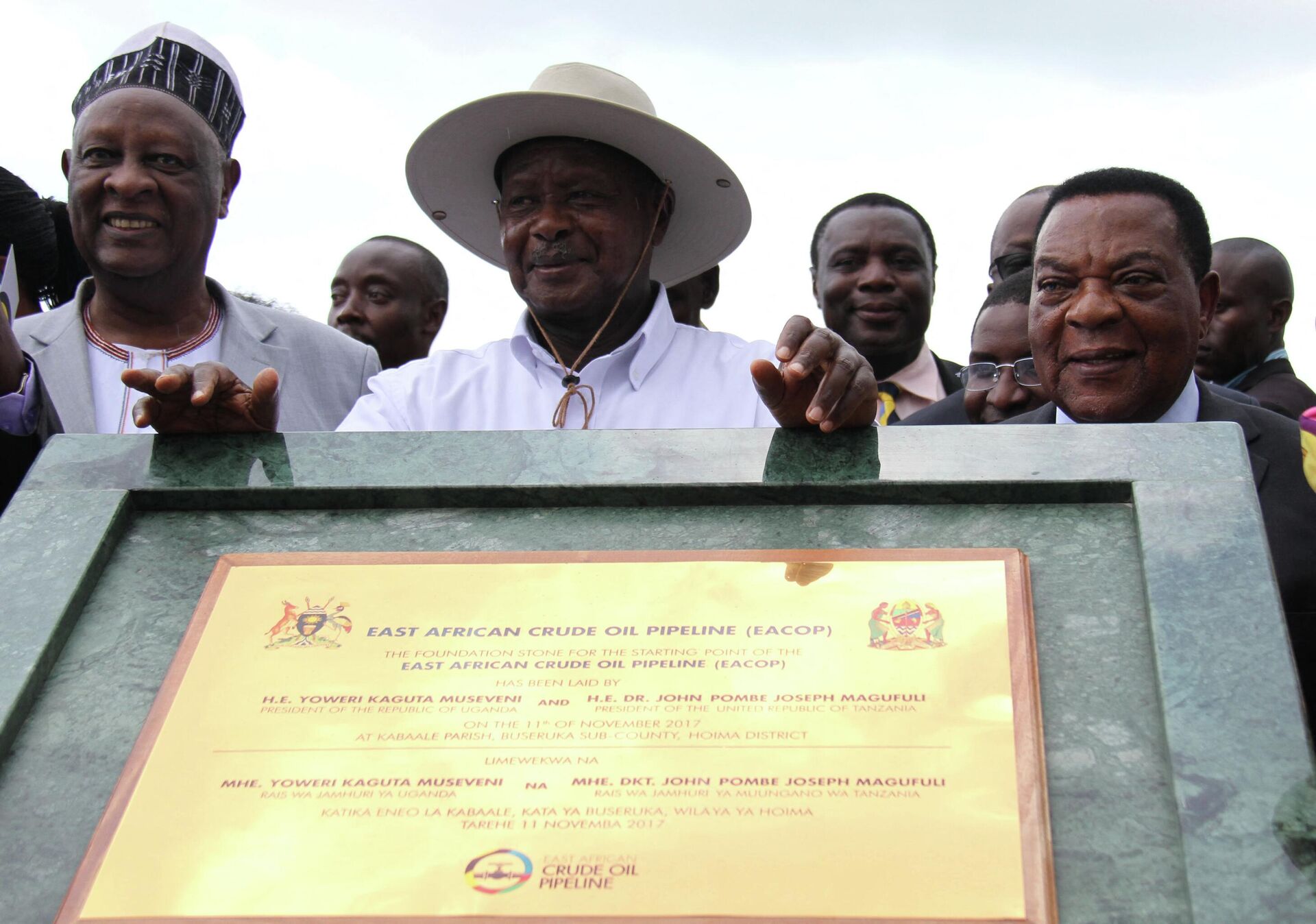French TotalEnergies CEO Summoned for Questioning Over Company's Participation in EACOP, Reports Say
13:11 GMT 26.09.2022 (Updated: 11:36 GMT 23.11.2022)

© AFP 2023 / STEPHANE DE SAKUTIN
Subscribe
The East African Crude Oil Pipeline (EACOP), developed by Uganda and Tanzania, will stretch 1,443 km from Lake Albert in western Uganda to the Tanzanian port of Tanga on the Indian Ocean. The pipeline project gives hope to hundreds millions of Africans that frequent electricity blackouts will remain in past.
TotalEnergies CEO Patrick Pouyanné has been summoned by the European Parliament for questioning over the company's participation in the construction of the EACOP pipeline, Business Insider Africa reported.
He is expected to justify TotalEnergues participation in the EACOP before the parliamentary Committee on Environment, Food and Natural Resources and the parliamentary of Human Rights on October 10.
The project in which French company is the main stakeholder, owing a 62 percent stake, was thoroughly denounced in the EU resolution passed on September 15.

25 September 2022, 21:16 GMT
The EU resolution accused the EACOP project of "violating human rights" and "posing social and environmental risks."
It also called "for the EU and the international community, as well as the project promoters and stakeholders” to “exert maximum pressure on Ugandan and Tanzanian authorities” in order to put an end to the project.
In response to the EU resolution, Uganda's Deputy Speaker of Parliament Thomas Tayebwa indicated that it represents the "highest level of neocolonialism and imperialism" against the sovereignty of Uganda and Tanzania.
“The resolution is based on misinformation and a deliberate misrepresentation of key facts on the environment and human rights protection,” he added.
The chairman of the Association of Tanzania Oil and Gas Service Providers (ATOGS), Abdulsamad Abdulrahim stated that pausing the project will only “increase the economic crisis” and deteriorate the situation in African countries.

17 September 2022, 11:48 GMT
"Our countries are still struggling to improve people’s living standard in this time when the world is undergoing a major energy crisis,” he stated in the explanation cited by DailyNews.
As for TotalEnergy, ambushed by the EU, Uganda’s president Yoweri Kaguta Museveni kept ahead of the game and said the project would be launched despite the decision of the company.
“We should remember that Total Energies convinced me about the Pipeline idea; if they choose to listen to the EU Parliament, we shall find someone else to work with,” he wrote on Twitter on September 16.
Through Twitter the Uganda's president also assured his people that the project will be implemented, saying “we shall have our oil coming out by 2025 as planned.”
EACOP will cover 1,443km from Uganda to Tanzania, where 80% of the pipeline will run, the project reads.

Uganda's President Yoweri Museveni poses with King of Bunyoro, Solomon Iguru the first (L) and Minister of foreign Affairs of Tanzania Dr. Augustine Mahiga (R) during the ceremony marking the laying of the foundation stone for the starting point of the East Africa Crude Oil Pipeline (EACOP) in Kabaale. - The Ugandan government plans to construct an oil pipeline of over 1,400 kilometres from western Uganda, where 6.5 billion barrels of oil have been discovered, to the Indian Ocean coast of Tanzania by 2020. (Photo by GAEL GRILHOT / AFP)
© AFP 2023 / GAEL GRILHOT
According to its launchers, the construction of the EACOP pipeline will benefit African countries by creating new jobs, developing logistics and infrastructure, and enhancing the trade corridor between Uganda and Tanzania.
The new pipeline is also expected to bring tax revenues to the host governments and improve the livelihoods of communities along the route.

